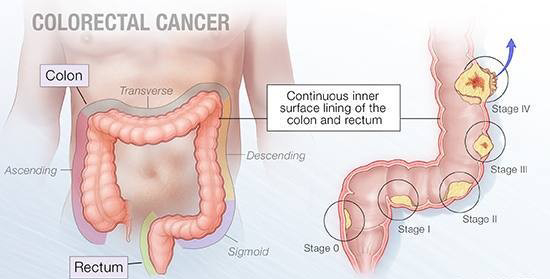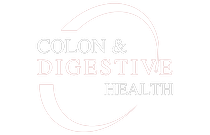Understanding Colon Cancer: Symptoms & Early Detection
Colorectal cancer, another name for colon cancer, is a dangerous but frequently avoidable condition. Our goal at Colon & Digestive Health Specialists is to educate you about this illness and the preventative measures you can take, including early detection, appropriate treatment, and lifestyle modifications. Under the expert guidance of Dr. Karim Shakoor, M.D, a board-certified gastroenterologist, our clinic offers comprehensive services for colon cancer screening, diagnosis, and prevention
What Is Colon Cancer?
The large intestine, a component of your digestive system, is where colon cancer begins. Usually, it starts as polyps, which are tiny, noncancerous growths. If these polyps are not discovered and removed right away, they may eventually develop into cancer. This kind of cancer is among the most prevalent in the US, but the good news is that it is very preventable and treatable with timely treatment and routine screening.

How Does Colon Cancer Affect the Body?
Your colon’s wall is made up of multiple layers. The innermost layer, where mucus and fluids are produced to aid in the passage of waste through your digestive system, is usually where colon cancer starts. This region may develop a polyp if aberrant cells proliferate there. The polyp may develop into cancer if it is not removed. The cancer may eventually penetrate farther into the colon wall and even travel through your blood or lymphatic system to other areas of your body..
Common Signs and Symptoms
Routine screening is crucial because colon cancer does not always exhibit symptoms in its early stages. However, as the illness worsens, you may observe:
- Blood in your stool: You may notice bright red blood or your poop may appear dark.
- Abdominal pain, bloating, or cramps that don’t go away.
- persistent diarrhea or constipation.
- inexplicable loss of weight.
- Feeling tired or weak
- Feeling that your bowel doesn’t empty completely
Causes and Risk Factors
Colon cancer, like all cancers, begins when body cells start to proliferate uncontrollably. It occurs in the lining of your colon in this instance.
Although the exact cause isn’t always known, the following factors raise your chances:
- Lifestyle-Related Risk Factors: Heavy drinking and smoking raise the risk.
- Insufficient physical activity can increase your risk of weight gain and cancer.
- Consuming a lot of processed meats, such as bacon or sausages, and red meats, such as beef or pork, can also raise your risk.
How Is Colon Cancer Diagnosed?
Colonoscopy: This is the most accurate test to detect colon cancer. A thin, flexible tube with a camera is inserted into the colon. If polyps are found, they can be removed and tested right away.
Imaging Tests: CT scans, MRIs, and PET scans help your doctor see if the cancer has spread.
Biopsy: During a colonoscopy or surgery, tissue is removed and examined under a microscope to confirm if cancer is present.
stool tests to look for hidden blood in your stool, like FIT and gFOBT.
Stages of Colon Cancer
The cancer’s stage indicates the extent of its spread:
- Stage 0: The cancer is very early and only affects the inner lining.
- Stage I: The cancer has not spread, but it has grown into the wall.
- Stage II: The cancer has penetrated deeper into the surrounding tissue or wall.
- Stage III: Adjacent lymph nodes have been affected by the cancer.
- Stage IV: The cancer has progressed to other organs, such as the lungs or liver.
Treatment Of Colon Cancer
The treatment plan depends on the stage of cancer, your health, and preferences. Common options include:
Surgery: Surgery is the main treatment for early-stage colon cancer. The goal is to remove the part of the colon that contains cancer and some nearby healthy tissue. If necessary, a colostomy may be created—a small opening in the abdomen where waste exits into a bag.
Chemotherapy: employs medications to eradicate cancer cells. After surgery, it’s frequently used to eradicate any cancer cells that may still be present or if the disease has spread
Immunotherapy: Helps your body’s immune system recognize and destroy cancer cells. This is typically for advanced or genetic cases.
Our Approach to Colon Cancer
Early Detection: Utilizing advanced screening techniques, including Colonoscopy, we aim to identify colon cancer at its earliest stages when treatment is most effective.
Prevention: Through detailed assessments and personalized risk evaluation, we implement strategies to reduce your risk and prevent the development of colon cancer.
Innovative Treatment: For those diagnosed, we offer a range of therapeutic options tailored to your specific condition and health needs.
Supportive Care: Our team is here to support you through every step of your journey, providing the information and guidance you need to make informed decisions about your care.
Why Choose CDH?
Expertise: Karim Shakoor, M.D extensive experience in gastroenterology and digestive diseases means you receive care from a specialist who understands the complexities of colon cancer.
Quality Care: Our clinic and the associated Eastside Endoscopy Center are accredited by The Joint Commission, reflecting our commitment to maintaining the highest standards of care.
Compassionate Team: We believe in treating our patients with respect and empathy, ensuring you feel supported throughout your treatment journey.
At Colon & Digestive Health Specialists LLC, we’re committed to helping you and your family understand and manage colon cancer. From prevention to recovery, we provide compassionate care every step of the way.
Many people with colon cancer don’t experience symptoms in the early stages. However, signs like blood in stool, persistent abdominal pain, or unexplained weight loss may indicate a problem.
Yes, colon cancer is highly treatable and even curable when detected in its early stages through screenings like colonoscopies.
Colon polyps are benign growths in the colon lining. While not all polyps become cancerous, some can develop into colon cancer if left untreated.
Colon cancer is diagnosed through colonoscopy, biopsy, imaging tests (like CT scans), and stool tests like FIT or gFOBT for hidden blood.
Colon cancer has five stages, from stage 0 to stage IV. The earlier it’s detected, the better the prognosis, with stage I having a significantly higher 5-year survival rate than stage IV.
Take Action
Whether you’re seeking screening, facing a diagnosis, or looking for preventive care, CDH is here to help. Contact us today to schedule an appointment with Karim Shakoor, M.D and learn more about your options for colon cancer care.
At CDH, we’re dedicated to your health and well-being. Let us be your partner in the fight against colon cancer.
Our location
Colon & Digestive
Health
Specialists
1805 Honey Creek
Commons,
Ste B, Conyers GA
30013
© 2026 All Rights reserved by Colon & Digestive Health Specialists

